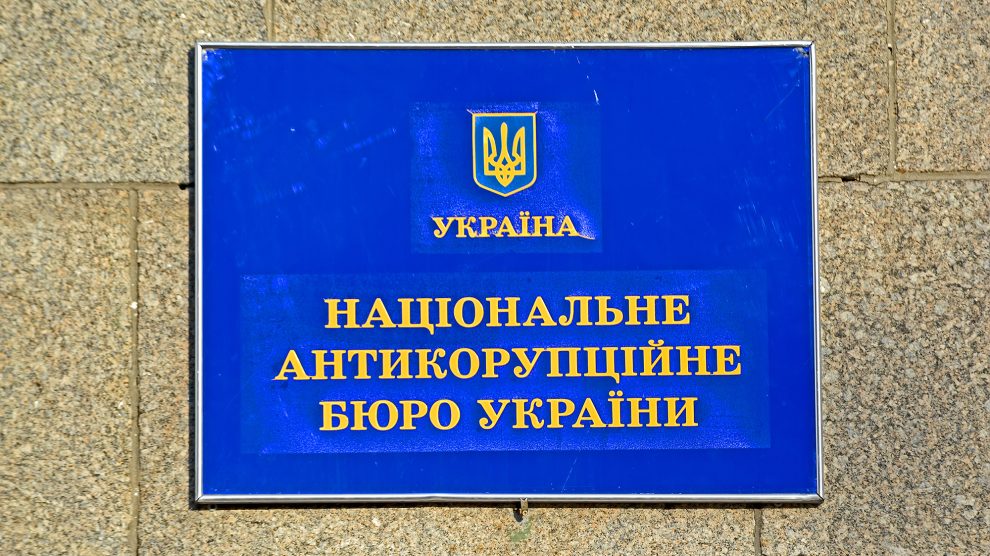It’s a gloomy picture for much of Eastern Europe and Central Asia – and parts of the EU – in the latest Corruption Perceptions Index. Ukraine meanwhile, even as it fights off Russia’s invasion, offers hope.
The 2022 Corruption Perceptions Index (CPI), published today by Transparency International, reveals that corruption remains rampant in Eastern Europe and Central Asia as many countries reach historic lows. Some parts of the EU are also struggling to properly tackle graft.
“Corruption has made our world a more dangerous place. As governments have collectively failed to make progress against it, they fuel the current rise in violence and conflict – and endanger people everywhere,” says Delia Ferreira Rubio, chair of Transparency International.
“The only way out is for states to do the hard work, rooting out corruption at all levels to ensure governments work for all people, not just an elite few.”
- CEOs in CEE are finding ways to leverage the current crisis for their companies’ long-term benefit
- Eastern European growth weaker, but resilient
- The sports community should not reward Russia
The CPI ranks 180 countries and territories by their perceived levels of public sector corruption on a scale of zero (highly corrupt) to 100 (very clean).
The Eastern Europe and Central Asia average declined this year, dropping one point to 35. Across the region, 2022 has underlined how high-level corruption is closely linked to political instability, weakened institutions and – in the most extreme cases – violent conflict. Governments undermine democratic processes, crack down on civic space and restrict media freedoms in a vicious cycle of corruption and authoritarianism.
The region (which does not include EU member states) is led by Georgia (56), Armenia (46) and Montenegro (45) – the only three countries from the region that score above the global average of 43.
Since 2017, Armenia is one of three countries – along with Moldova (39) and Uzbekistan (31) to have significantly improved its CPI scores.
At the other end of the scale, Serbia (36), Bosnia and Herzegovina (34) and Azerbaijan (23) are all at historic lows this year. The lowest ranked country in the region is Turkmenistan, with a score of just 19.
‘Unchecked corruption and kleptocracy’
According to Altynai Myrzabekova, Eastern Europe and Central Asia regional advisor of Transparency International, this year the international community saw the most violent result of unchecked corruption and kleptocracy.
“It’s time for a wake-up call for Eastern European and Central Asian leaders to finally commit to addressing pervasive corruption and support democracy, stability and basic freedoms for all people across the region,” she says.
Although it still scores low, war-torn Ukraine (33) has gained eight points since 2013. The country has long struggled with systemic abuse of power, but has taken important steps to improve oversight and accountability.
Even while fighting back the Russian invasion, in June 2022, Ukraine’s parliament adopted a new National Anti-Corruption Strategy and appointed a new head of the office that brings corruption cases before the courts.
The strengthening of state institutions and functions vulnerable to corruption has been another vital factor in the country’s progress: research shows that interference in the judiciary by oligarchs and other vested interests was one of the key corruption risks before the war.

In the EU, emerging Europe brings up the rear
Among EU member states, emerging Europe’s top performer is Estonia, with a score of 74 and a global rank of 14th. However, three countries from the region – Hungary (42), Bulgaria (43) and Romania (46) – are the EU’s worst performers.
Hungary’s score is an all-time low. After a decade of democratic backsliding and systemic deterioration of the rule of law at the hands of the country’s ruling party, Fidesz, evidence is mounting against political elites on their misuse of both state and EU funds.
However, following a recent agreement with the EU, conditions for the country to access 5.8 billion euros in EU funds include institutional reforms to strengthen judicial independence and the fight against corruption.
A larger part of EU funding – 6.3 billion euros – has been suspended due to unacceptable corruption risks and ineffective prosecutorial action.
The Transparency International report suggests that the success of this belated but promising conditionality mechanism now depends on the EU’s willingness to compel Prime Minister Viktor Orbán’s government to introduce meaningful reforms so that rule of law can be reinstated.
It also notes that with elections on the horizon and hopefully some lessons from Hungary, Poland (which scores 55) is “rushing” to adopt changes to unblock EU funds. The government has recently proposed measures to strengthen judicial independence and reforming the disciplinary regime for judges, following rule-of-law criticism from the European Commission.
Unlike many news and information platforms, Emerging Europe is free to read, and always will be. There is no paywall here. We are independent, not affiliated with nor representing any political party or business organisation. We want the very best for emerging Europe, nothing more, nothing less. Your support will help us continue to spread the word about this amazing region.
You can contribute here. Thank you.


